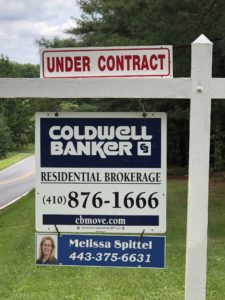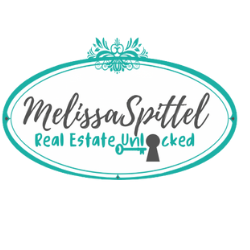What’s My House Worth? What are the Comparables in Maryland?
What is my Maryland home worth? Many Maryland homeowners are curious about the current market value of their house. Homeowners who are considering selling their house “For Sale By Owner” want to know how much to ask for their house. Homeowners who sell their homes through a Realtor® also need to understand what their home is worth so a realistic listing price can be established. Sadly, homeowners frequently believe their home is worth more than the actual value. Maryland homeowners often raise their families in their homes and have emotional attachments and memories. They also frequently invest money in their homes in the forms of maintenance and upgrades. As a result, they believe their homes might be worth more.
In reality, their homes may (or may not) be worth more. Determining the true value is actually a struggle for most Maryland homeowners. In fact, a National Association of Realtors’ survey of for-sale-by-owners found that determining an accurate price for their home was the homeowner’s most challenging task.
A home value too high or too low are both disastrous to a homeowner’s pocketbook.
Likewise, someone buying a house in Maryland is interested in what it is really worth. Buyers are concerned about paying too much for the house they choose, and therefore want to know how much they should offer.
How are Maryland Home Prices Determined?

Real estate agents and professional appraisers use similar processes to determine a home’s market value. The purpose behind the two, however, is what differs, although slightly.
Agents are determining market value whereas the appraiser’s sole purpose is to ensure that the lender isn’t loaning more than the house is worth.
Both real estate agents and appraisers will compare your house to other houses by comparing the comps. What does the term “comp” mean? These other homes are known as “comps,” which is short for “comparables.” A comparable home is the same as a similar home. It’s the houses that are compared to yours.
Likewise, when looking at houses, buyers want to know the market value. They want to know if a house is over-priced or priced correctly. Home buyers in Maryland are typically NOT willing to pay more than the market value of a house for sale. Their buyer’s agent will look at the comparables to assist them in understanding the true market value of houses they like.
Let’s take a deeper dive into how a particular property qualifies as a comp when comparing houses.
What is “Market Value?”

Businessdictionary.com defines market value as “The highest estimated price that a buyer would pay and a seller would accept for an item in an open and competitive market.”
How do we know what a buyer will pay?
By investigating what recent buyers have paid for similar homes
Sold homes, then, are the primary comps real estate agents use when preparing a comparative market analysis. Appraisers, too, use sold homes when determining how much a home is worth.
How are Comparables in Real Estate Determined?

Typically, we’ll look back no more than six months for sold homes, similar in age, style and size, within a a close proximity of your home. Sometimes there are not enough similar homes in close proximity. In that instance, the search area is expanded. Occasionally, the time 6-month time frame is expanded as well.
1. Location Matters in Finding Comparables
Proximity (location) is an important factor when searching for comps. So important, in fact, that some lenders require that their appraisers search no further than one-mile in all directions if the subject home is in the suburbs and five miles in rural locations.
We, as real estate agents, have a bit more flexibility. We typically start our search for comps close to the subject property and work our way out until we have at least three comps that have sold in the past six months or so.
Then, there are additional “location, location, location” aspects to compare.
A home’s location can positively or negatively impact it’s value. Positive nearby amenities include:
- Parks
- Schools
- Shopping
- Access to freeways and highways
There are additional proximity amenities, some of which are specific to certain regions, such as proximity to the beach or golf course.
Negative influences include:
- Neighborhood condition (if the neighborhood is rundown)
- Neighbors (hoarders, sexual predators and homeowners in foreclosure)
- Traffic, train, airport or other noise
- Schools (homes in poor-performing school districts are worth less than those in high-performing districts)
- Oversupply of homes for sale
- Crime
These are just a few of the ways the location of your home impacts its value.
2. Size Matters in Finding Comparables
Since similar homes are used to determine a home’s value, size is an important factor. A 2000 square foot house is not similar in size to a 1200 square foot house. Trying to compare the two just will not work because the square footage is too different. So, houses of a similar size are used. This makes the houses similar, and therefore, are fair comparisons.
When is comes to comparing size, square footage above ground level is the most important. Anything above ground level is considered “living space”. Basement space is not figured into the overall size of a house.
3. Overall Condition Matters in Finding Comparables
Real estate agents and appraisers agree, the condition of your home will carry a lot of weight when viewing the comps.
First, we’ll determine if there are any deferred maintenance issues, such as leaky plumbing, overgrown or neglected landscaping, damaged flooring, cracked tiles or window glass, among others.
Then, we’ll deduct value if comparable homes are in better condition or add value if they aren’t.
Determining how much a home will sell for in the current real estate market depends on how much buyers are willing to pay for similar homes. Those homes, as you now know, are called “comps.”
4. Other Features of Houses are Used in Comparing Comparables
Additional features are then factored into the comparisons. A house in good condition that has the most features will likely be worth more than a similar house with less features. Features that add value to the overall price of a house include:
- Upgraded kitchens
- Upgraded bathrooms
- Garages
- Fireplaces
- Covered front porches
- Decks and patios
- Enclosed porches / sunrooms
- Fenced yards
- Storage sheds
- Total number of bathrooms
- Finished basements
- Additional parking
- Central air conditioning
How Do I Find Real Estate Comparables?

Finding the comparables seems like it should be relatively easy. There are a huge variety of websites featuring homes for sale. Actually finding the right homes can be a little tricky, however.
Many websites do not update promptly. As a matter of fact, it’s not uncommon to find houses that sold several years ago. Finding the similar homes that sold in recent months can be a challenge.
Additionally, making the actual comparisons can be more challenging than it seems. It’s important to accurately adjust home values based on the many important factors. These adjustments can change as the market changes. It’s crucial to valuate homes correctly to obtain the most accurate value.
Why Do Comparables Matter When Selling a House in Maryland?

When selling a house in Maryland, establishing an accurate market value and list price is of the upmost importance. Accuracy pricing is a key factor that helps houses sell quickly.
Realtors® who list houses begin by preparing a “CMA”, otherwise known as a “Comparative Market Analysis”. This report is a snapshot of the local real estate market in a a specific Maryland community. This information and data is then used to help homeowners choose a listing price for their house. The data is obtained from the multiple listing service. A homeowner does not have direct access to this information. However, a Realtor®, does have access to the multiple list. The multiple list is only available to licensed members, who must pay dues to gain access to the data. Some of the available data includes tax information, sold properties, and listings for sale.
The CMA will include a side-by-side comparison of homes for sale and homes that have recently sold in the same neighborhood and price range. Additional details such as type of home (single-family vs. condo vs. townhouse, for example), number of bedrooms & bathrooms, and many other factors are then considered. The overall purpose of the CMA is to show the fair market value based on what buyers have been willing to pay for similar properties.
The CMA also assists sellers in determining a list price by looking at the houses currently for sale, and those already under contract. It is important to choose a list price that is competitive with other homes for sale. The best way to guarantee your house won’t sell quickly is to list it higher than the competition. Strategically choosing a list price based on the CMA provides the best chance of getting a property sold.
Why Do Comparables Matter When Buying a House in Maryland?

Most buyers in Maryland ask “how much should I offer for a house?” The answer should be based on the comparables. The comps show what other buyers have been willing to pay for similar houses. If a similar house sold for $250,000, for example, a buyer should be prepared to pay about the same.
When a buyer is ready to make an offer on a house in Maryland, their buyer’s agent will share the comparable homes that have sold. Single-family homes will be compared with single-family homes. Condos will be compared with other condos. Townhouses will be compared with other townhouses. This list of similar homes will help establish a fair market value to consider when making that offer.
Other factors that will be compared include: the size of the home, the number of bathrooms & bedrooms, whether the basement is finished or unfinished, the presence of a garage, whether there is a deck and/or patio, and any upgrades that may or may not be present. If there are other features that should be taken into consideration, they will be compared as well.
When a buyer is considering purchasing a specific house in Maryland, the comparables will help establish a fair market value for that property. This detailed information will enable a buyer to make an offer that is fair, reasonable, and has the best chance of being accepted by the seller.
Who Can Help Me Find the Right Real Estate Comparables in Maryland?

Some homeowners will hire an independent appraiser to perform a private valuation of their house. Most often, the homeowners are surprised to learn the valuation is lower than they expected.
The best way to obtain a valuation is to ask a REALTOR® to perform a “CMA”, (Comparative Market Analysis) for you. A REALTOR® has the knowledge and experience to locate similar properties that have sold, make the necessary adjustments while comparing houses, and determine a fair market value.
Curious what your home might be worth?
Find out now!




